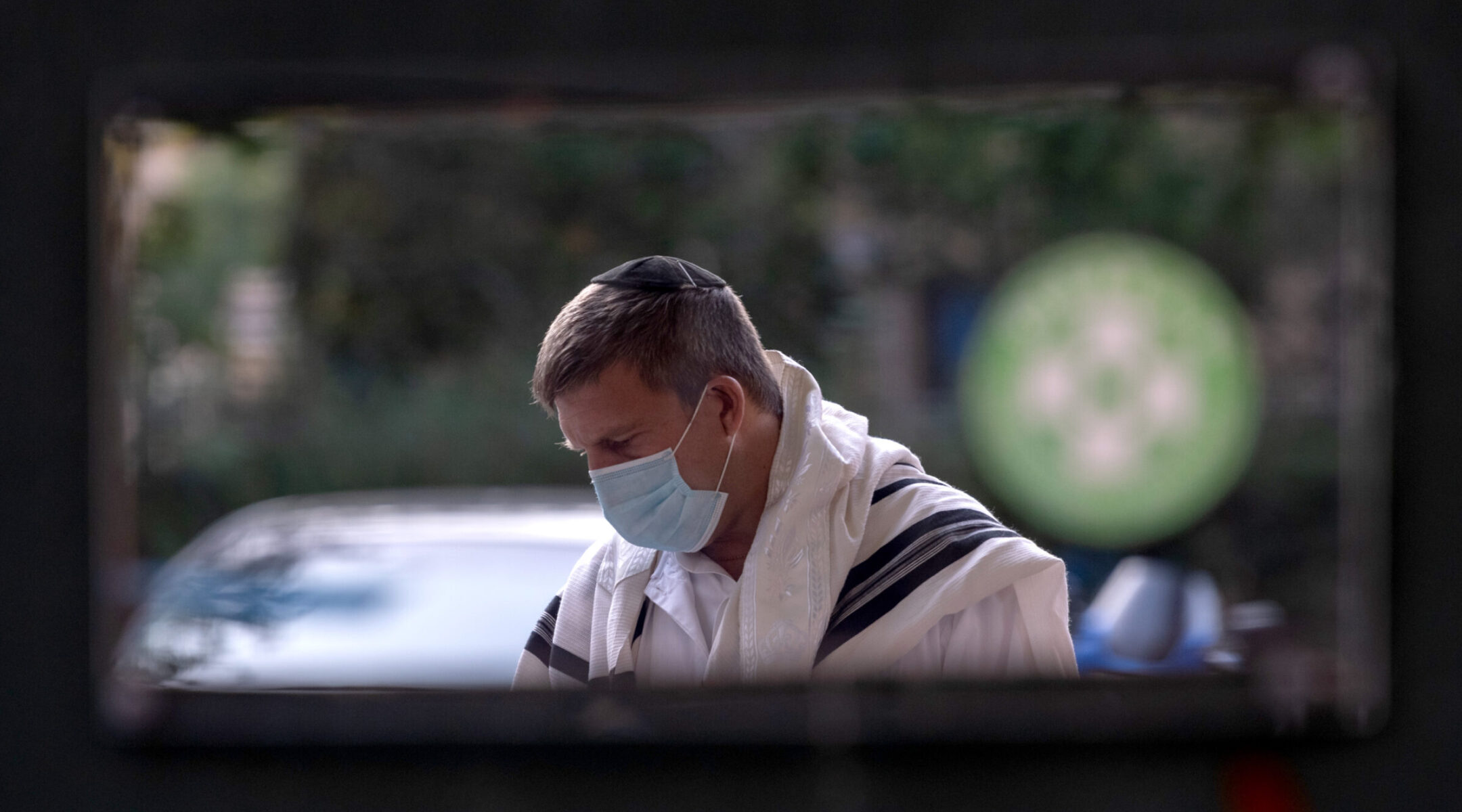The Supreme Court’s repeal of synagogue restrictions won’t change anything for Orthodox congregations like mine
(JTA) — As the rabbi of a synagogue on the Upper West Side of Manhattan, I have been keeping a close eye on pronouncements by the governor about the ever-changing New York state guidelines governing houses of worship. Since reopening in the summer, we have taken note of how quickly synagogues have had to adapt when they found themselves subject to occupancy limits of 10 or 25 people. When the U.S. Supreme Court rendered a decision about the legality of these state-imposed restrictions, we followed it with great interest.
In last week’s split decision, the court set aside the attendance limits that Governor Cuomo had imposed on houses of worship in red and orange zones. The decision does not immunize synagogues, mosques or churches against government restrictions. It simply insists that those restrictions must not be more severe than those placed on comparable secular gatherings.
Champions of religious freedom cheered. In their view, the court had beaten back an overreaching state. But for a synagogue community like ours, the decision is largely academic.
From the outset of this pandemic, it has been our position that while adherence to the dictates of the government is required by halakha, or Jewish law, those dictates represent a floor rather than a ceiling. In the halakhic calculus, few issues are treated more conservatively than those pertaining to public safety. That a given activity may be legal does not necessarily mean it is advisable or even permitted. Our synagogue closed before being mandated to by the government. We waited to reopen until well after the state proclaimed reopening permissible. And while the government’s occupancy limits would have allowed us to seat 100 or more people in our sanctuary, our internal guidelines restricted capacity to a fraction of that number.
We can all agree on the need to protect the free exercise of religion guaranteed by the First Amendment.
But in the context of a raging pandemic, we are not animated by a desire to search for allowances or dispensations. We are not interested in how many people we can legally cram into a given space. Our goal is not simply to satisfy the requirements of the state so that we can check a box. Our goal is to protect the health and well-being of every person who passes through our doors and, in turn, the health and well-being of every member of our broader community. If that requires the expenditure of more time or more funds on our part, so be it.
As Americans, we are conditioned to think about rights. As Jews, we are also meant to think about responsibilities. Mitzvot are not good deeds; they are obligations dutifully performed by those who aspire to better the world by making it more sacred or more godly.
Rather than pursuing concessions from the state, we ought to be pursuing opportunities to contribute to it. For Jews, the best way to celebrate the triumph of religious freedom is to treat that freedom responsibly.
Justice Neil Gorsuch filed a separate opinion in this case in which he wrote that “[e]ven if the Constitution has taken a holiday during this pandemic, it cannot become a sabbatical.”
By the same token, those of us operating houses of worship cannot afford to rest for even a moment. By insisting on protocols that meet and exceed the expectations of public health officials, we can model responsible civic conduct. Maintaining these high standards represents an ongoing challenge, but we are obliged to do nothing less.
As citizens of the United States, each of us is called upon to abide by the laws of the nation. What kind of citizen a person will be remains a question of personal preference. But in the Jewish conception, the Talmud tells us that we are charged with an affirmative requirement to be “good neighbors.” When the need arises, each of us has to make a concession for the benefit of a greater good. It’s not about how many people in our community we can fit into a service. It’s about how our people can fit service to the community into their lives.



